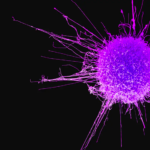“Smoking can greatly increase the risk of this condition”
New Delhi, April 13, 2018:
Certain iron supplements may influence the development of colon cancer as per a recent study. It concludes that both ferric citrate and ferric EDTA, found in supplements, cause an increase in cellular levels of amphiregulin, a biomarker for cancer, even in low doses.Most supplements are only marked as ‘iron’ or ‘iron mineral’. It is important to be aware of what one is consuming.
With respect to incidence and mortality rates, in the Indian scenario, colorectal cancer stands fourth in men and third in women. The fact that about 25% to 30% of Indians are vegetarian offers some protection against cancer.
Speaking about this, Padma Shri Awardee Dr K K Aggarwal, President Heart Care Foundation of India (HCFI) and Immediate Past National President Indian Medical Association (IMA), said, “Your diet, weight, and level of physical activity can have a direct implication on your risk of developing colorectal cancer. History of adenomatous polyps (adenomas), especially if they are large, increase the risk of cancer. If you have had colorectal cancer, even though it has been completely removed, you are more likely to develop new cancers in other areas of the colon and rectum. The chances of this happening are greater if you had your first colorectal cancer when you were younger. Though the no. 1 cancer in women in urban areas is breast cancer and in rural areas is cancer of the cervix, the cancer of the rectum is on the rise as well.”
Some common symptoms of colon cancer include blood in stools, change in bowel habits, abdominal or rectal pain, constant or frequent urge to have bowel movements, weakness, and decreased appetite.
Adding further, Dr Aggarwal, who is also the Group Editor of IJCP, said, “The choice of treatment for colorectal cancer depends on the stage of the disease, that is, how large the tumor has grown, how deeply it has invaded the layers of the colon or rectum, and whether it has spread to other organs like liver, lungs or some other parts of the body.S urgery or chemotherapy may be recommended only when the disease has advanced. However, prevention is always better than cure. Those with known risk factors or a family history of this condition should definitely take preventive measures at the earliest.”
Some tips from HCFI to prevent colon cancer.
Certain lifestyle modification can help prevent or decrease the chances of getting colorectal cancer.
- Consume healthy food and a diet rich in fruits, vegetables, and whole grains.
- Avoid or limit intake of fat, processed meat
- Quit smoking and drinking; avoid too much of caffeine and keep yourself hydrated by drinking lots of water.
- Keep yourself active physically and exercise for at least 30 minutes every day.







